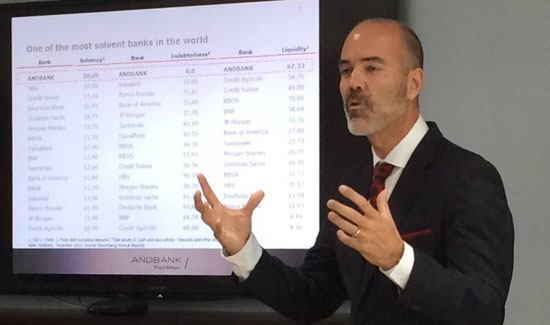 NASSAU, The Bahamas — The Government of The Bahamas will borrow the sum of $7.5million from the Inter-American Development Bank (IDB) for the purpose of implementing its Social Safety Net Project.
NASSAU, The Bahamas — The Government of The Bahamas will borrow the sum of $7.5million from the Inter-American Development Bank (IDB) for the purpose of implementing its Social Safety Net Project.
“We are on the verge of a real breakthrough in our social safety net system which we believe will bring social services into the 21st century and see a country where all citizens are economically empowered to provide for themselves and their families and have equal opportunity to access services that will enhance the basic quality of life for all,” Minister of Social Services and Community Development, Melanie S. Griffin said.
Mrs. Griffin said a National Steering Committee comprising the Permanent Secretaries of the Ministries of Social Services, Education, Science and Technology, Health and Local Government, and a representative from the Ministry of Finance serving as the Chairperson, has been proposed to steer the process.
“The Ministry of Social Services is happy to have the Ministries of Health and Education, Science and Technology as integral partners,” Mrs. Griffin said. “The majority of beneficiaries will be required to meet certain health and education conditions to receive the full benefit on a monthly basis.”
Mrs. Griffin said officials at the Ministry of Health have identified childhood obesity as one of the conditions that would be tied to the receipt of assistance while the Ministry of Education identified enrolment gaps between poor and non-poor children in pre-school education and low, high school graduation rates.
“These Ministries will be required to monitor and submit monthly reports on compliance as well as undertake interventions to assist with compliance. The expectations of these Ministries will be set out in a Memorandum of Understanding,” Mrs. Griffin added.
The Social Services Minister said an important aspect of the social safety net reform is the introduction of a Conditional Cash Transfer (CCT) Programme which targets the poor, provides a cash grant and requires households to comply with health and education conditions primarily on the part of children in the household. The main features of the CCT are as follows:
a single cash grant to replace various assistance programmes;
a Proxy Means Test (PMT) administered by way of a Management Information System (MIS) will determine the eligibility of each applicant based on a pre-determined score;
the MIS generates a list of beneficiaries who have met the criteria and are eligible to receive the benefit;
contributes to long term growth and development through a better educated and healthier population.
The project, which will also include an Institutional Analysis and Strengthening of the Department of Social Services, is expected to lead to the institutional strengthening of the Department of Social Services, which in turn, will lead to the development and dissemination of communications and public awareness activities and ensure that all prospective beneficiaries are informed of the reform and eligibility requirements and that the public and stakeholders are adequately informed.
Mrs. Griffin said the genesis of the social safety net reform project was in May, 2004, when the Inter-American Development Bank, with the sanction of the Government, contracted Dr. Lorraine Blank to conduct an assessment of the country’s social safety net.
The major findings were that the social safety net could benefit from rationalisation of existing programmes and improved programme coordination; programmes relied on inefficient targeting mechanisms; the level of benefits and mechanisms for delivery of benefits are inconsistent between major programmes; information and monitoring systems were weak; policies and procedures were not fully documented; National Insurance reform would strengthen its ability to protect the elderly, and that the safety net was barely reaching the poor.
“The findings clearly showed the need for social safety net reform,” Mrs. Griffin said. “A number of strategies were put forward to strengthen the social safety net. These included inter alia, the consolidation of programmes; improved targeting; and introduction of a Conditional Cash Transfer (CCT) programme
“Extensive discussions were held with the IDB on the matter which also sponsored visits to Mexico and Jamaica where reforms were underway and Conditional Cash Transfer (CCT) programmes introduced, however the matter was placed on hold by the former Government following the general election in May 2007. It was not until mid 2011, discussions were resumed with the IDB, another study tour was taken to Jamaica by a multi-ministerial delegation in December 2011 and several IDB missions were held here in The Bahamas,” Mrs. Griffin added.
By Matt Maura
Bahamas Information Services



